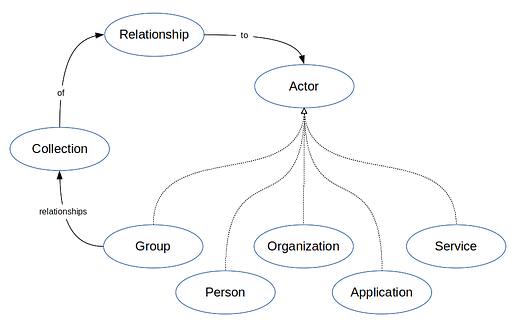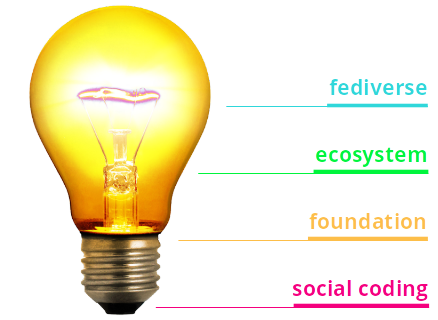This topic is mirrored from What would an ideal fediverse organization do?, created by @WisTex on SocialHub, as there is much relevance to that question to the Social Coding Movement.
Fediverse Organization
In many regards the question that is the topic of this thread is the reason that Social Coding Movement exists. The scope of Social Coding is broader, as it focusses on the entire lifecycle of free software development. But for the social aspects that are involved with any software project it aims to wield the Fediverse as much as possible. One might say:
The more seamless Fediverse supports Free Software Development processes, the better it is suited to support its own development.
The Fediverse is an example of a free software ecoystem, where many, many projects rely on an underlying technology base - most prominently the open standards of ActivityStreams and ActivityPub, plus Linked Data. For this technology base to mature and adoption to increase the ecosystem players must collaborate. That is the core challenge to solve, an especially tricky one given grassroots and anarchistic culture. There is a win-win if project members involve themselves beyond the scope of their own work, and dedicate some time to substrate formation to strengthen the foundations their own project rests upon. But advantages aren’t always clear, and time is precious.
There is a “Tragedy of the Commons” at the protocol levels of the Fediverse.
The topic Major Challenges for the Fediverse keeps track of the problems that must be overcome, and Social Coding will dedicate to bring solutions to them.
@WisTex brings some great points in the Socialhub topic and I wholly agree that a “governance body” isn’t going to work. Any form of organization needs to take the unique dynamics and culture of both Fediverse and FOSS movements into account. I recommend reading Challenge: Fixing the Fediverse Technology Adoption Lifecycle that offers hints on how to do so.
About SocialHub
I have been moderating SocialHub for a couple of years and spent much time on community-building there. The SocialHub has been more active in the past, but due to various reasons it has declined and can be seen now as “just-a-forum”. There’s no real community unfortunately.
Some factors:
- Some members feel scope should be technical-only, AS/AP and its implementation details.
- Frustrations that discussion remains “Just talk”, leads to no real ecosystem improvement. Folks rather code their own app.
- Staff, esp. admins, have a hands-off approach, recently aren’t actively involved. Volunteered tasks aren’t done (e.g. Wellbeing team).
- Serious well-being issues involving high-profile members have torn the community (I was involved via Wellbeing team).
Will mention this topic in Social Coding Foundations chatroom for discussion.

